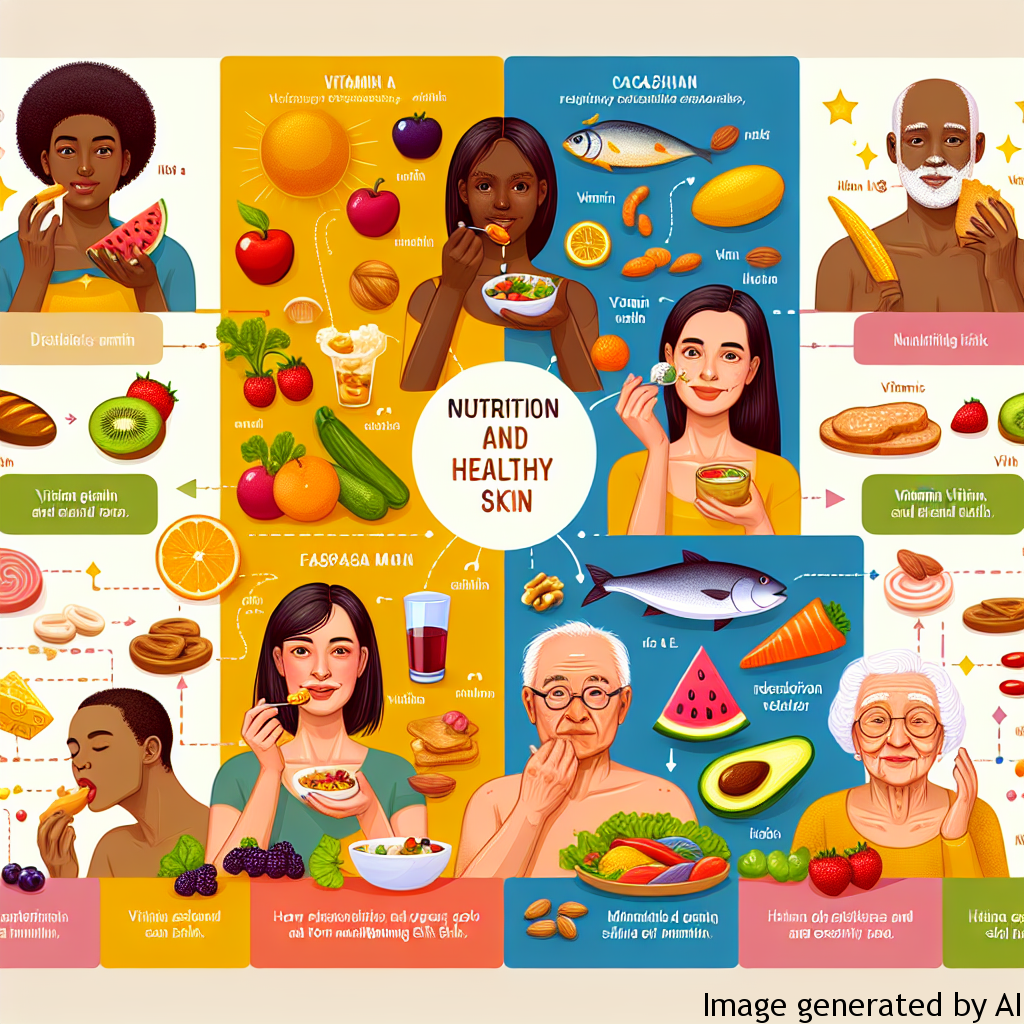Introduction
Nutrition plays a crucial role not only in overall health and wellness, but also in the health of our skin. The skin, being the largest organ in the body, reflects our overall health status. A well-balanced diet can do wonders for the complexion and overall quality of our skin, improving its appearance, texture, and function.
Understanding Skin Nutrition
Importance of Nutrition for Skin Health
Our skin is constantly regenerating, and the nutrients we consume directly influence this process. Proteins, fats, carbohydrates, vitamins, and minerals all participate in the synthesis of collagen, elastin, and keratin – essential proteins for skin’s structure and function. Nutrition can also help with skin conditions, protect the skin from sun damage, and delay skin aging.
Differences in Skin Nutrition Requirements for Men and Women
Men and women have different skin nutrition requirements due to several factors, including hormonal differences, skin thickness and texture. Men tend to produce more sebum, leading to oilier skin and potentially more acne. Therefore, they may benefit from a diet low in sugary and processed foods which are known to exacerbate acne. Women, on the other hand, deal with hormonal changes that affect skin’s appearance, particularly during menstruation, pregnancy, and menopause. Foods rich in antioxidants, like fruits and vegetables, can help combat hormone-related skin issues.
How Nutrition Can Affect Skin Health
Deficiencies in certain nutrients, or an overall poor diet, can lead to skin problems. For example, a lack of Vitamin C can lead to scurvy, characterized by spongy gums and skin hemorrhages. Similarly, deficiency in Vitamin A can lead to xerophthalmia (dry eyes) and hyperkeratosis (abnormal skin growth). Conversely, a balanced diet rich in fruits, vegetables, lean proteins, healthy fats, and whole grains can contribute to radiant, healthy skin.
Tips for Skin-Healthy Nutrition
- Eat a variety of fresh fruits and vegetables, which are packed with skin-loving vitamins and antioxidants.
- Stay hydrated. Water is crucial for skin’s elasticity and overall health.
- Avoid processed foods as much as possible. They are often high in sugar, salt, and unhealthy fats, all of which can harm skin’s health.
- Include sources of healthy fats in your diet, like avocados, nuts, and fish. These fats contribute to skin’s natural oils, keeping it moisturized and supple.
Conclusion
In conclusion, nutrition plays a fundamental role in the health and appearance of our skin. A balanced, varied diet could be the secret to achieving a flawless complexion. Remember, what we put into our bodies is as important as what we apply on our skins. Therefore, it’s important to nourish our skin from the inside, not just the outside.

